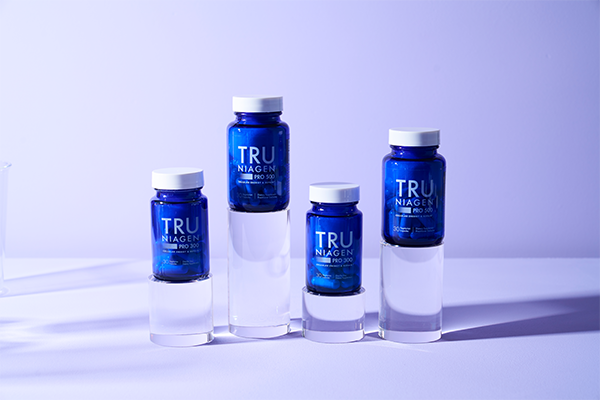



| By Frank Jaksch

To all of my fellow healthcare practitioners: Every decade, the supplement pipeline generates just a few truly innovative products. Tru Niagen Pro well deserves its place among them. Exciting research keeps validating its health-supporting potential. I take it personally, and it’s one of my favorite recommendations for my patients. It’s included in my Fullscript dispensary. If you’re a healthcare practitioner, I would highly suggest you consider it for your patients as well. In this article, learn how Tru Niagen Pro can benefit them.
–Dr. Ronald Hoffman
This article contains content from one of our trusted sponsors.
Increasing levels of the cellular energy molecule nicotinamide adenine dinucleotide (NAD+) can support our cellular resilience as we emerge from months of quarantine.
Your Body: A Temple Under Siege
After spending months sheltered away in protection of our health, our cellular defenses have been brought top of mind. Our cells are constantly under attack, leading to the accumulation of quadrillions of new mutations in our DNA each day. Our bodies were brilliantly equipped with powerful systems and processes, many of which rely on a vital supply of NAD+, to help defend against these assaults.
Over the last few months, we are more apt to have subjected ourselves to the deleterious effects of poor-diet, poor-sleep, alcohol consumption, and a sedentary lifestyle. Coping with these physiological and metabolic stressors alone draw upon the precious NAD+ pool within our cells. Low NAD+ levels have been associated with weakened cellular resilience, physiological dysfunction and many of the symptoms and challenges of aging. Fortunately, preclinical data suggests NAD+ may play a role in helping defend against these stresses by promoting cellular defenses and repair.
NAD+ and Its Potential Role in Immune Stress
NAD+ powers essential enzymes like PARPs and Sirtuins [1-3], both of which play a critical role in helping repair cellular damage incurred from the inflammatory response following infection.
The protective effects of these enzymes, regulated by NAD+, helps to keep the inflammatory response within a “goldilocks zone:” too much inflammation could lead to a “cytokine storm”; too little allows a virus to spread unperturbed.
This immune regulation is powerful but energetically expensive. Viral infections stress the immune system and can deplete NAD+ levels. Preclinical research suggests viral exposure may deplete infected cells’ NAD+ levels by as much as 80% [4-6].
Supporting Cellular Metabolism to Help Build Resilience
The NAD-operated Sirtuins also play a keystone role in regulating our body’s cellular metabolism.
Breakdown of foods, especially fatty and processed foods in large amounts, leads to production of free oxygen radicals which damage our DNA. Accumulation of this damage can cause cellular senescence (resulting in the symptoms of aging) and genetic mutations.
Sirtuins are known to decrease this damage by slowing metabolism down. Scientists believe that boosting Sirtuin activity could potentially “mimic” calorie restriction, helping mediate metabolic responses and delay age-related decline.
Tru Niagen® Pro: A Safe, Proven Way to Boost NAD+
Tru Niagen Pro, known in the scientific community as NIAGEN® Nicotinamide Riboside (NR), has been proven as a safe and efficient way to raise NAD+ levels and activate Sirtuins. It has been well studied with ten published human trials and over 30 additional clinical studies in progress. Not only has it been clinically proven to increase NAD+, it also has no attributable side effects found in published trials.
As you prepare to go back out into the world, support your cellular resilience with Tru Niagen Pro.
—Frank Jaksch, ChromaDex Founder and Chief Executive Officer
References
Though we think of declining estrogen as the hallmark of menopause, it's actually common for…

Up to 12 percent of Americans have ulcers at some point in life. Peptic ulcers…
Gallbladder disease is a modern illness. An estimated 20 million Americans have gallbladder disease. The…

There’s more to GI health than whether or not to take an acid-blocker. All too…

In the latest attempt to remove “stigma” from medical terminology, liver specialists have come up…

Q: My husband’s high sensitivity C-reactive protein (hs-CRP) is 1.62 and his homocysteine is 13.1. If…

Banish the Bloat: Leyla Weighs In with Tips and Insights

Our virtual voicemail is open 24/7, so there's no need to wait to submit your questions for Dr. Hoffman. Leave a message, and you may hear your question featured on the Intelligent Medicine radio program!